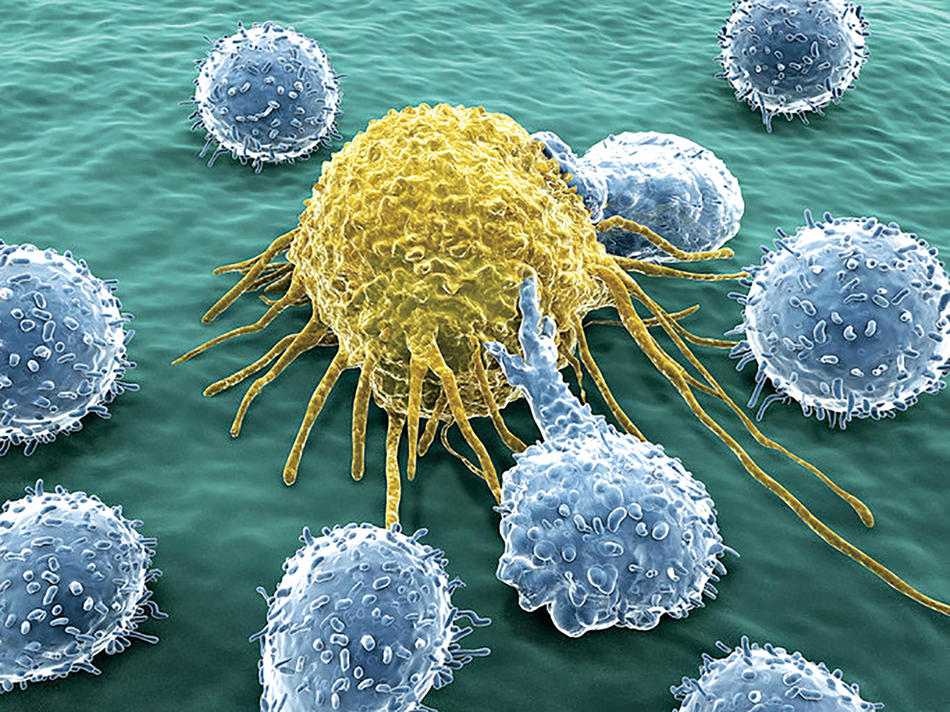Columbia researchers have genetically reprogrammed bacteria to invade tumors and strip cancer cells of a disguise they use to hide from the immune system. The technique, developed in the laboratories of immunologist Nicholas Arpaia and biomedical engineer Tal Danino, could lay the groundwork for a new type of immunotherapy, a form of cancer treatment that turns the body’s natural defenses against the disease.
Immunotherapy has been heralded as the next revolution in cancer treatment, but it has not been widely adopted in part because it can cause serious side effects. Arpaia and Danino say that their approach, which they’ve tested successfully in mice, could dramatically reduce this risk, since it stimulates the immune system only in the immediate vicinity of tumors.
“A lot of immunotherapy drugs are injected into the bloodstream and therefore spark unintended immune reactions throughout the body,” says Arpaia. “The colon, skin, lungs, liver, and endocrine organs can all be seriously damaged.”
To deliver an immunotherapy drug directly to cancer cells, Arpaia and Danino genetically reprogrammed a safe variety of E. coli that can be taken orally and that will ultimately be cleared out from most parts of the body by the immune system. “But it will colonize tumors, because that’s what bacteria do — they seek refuge in cancers that are operating below the radar of the immune system,” says Danino. Once this E. coli reaches the tumors, it sets to work undermining the cancer cells’ disguise: it manufactures an antibody that will bind to the cells’ outer surfaces, covering up a protein that the cells have evolved to fool the immune system into believing they are ordinary and healthy.
In a recent paper in the journal Nature Medicine, the researchers report that this treatment cured lymphoma in mice without causing the animals any discernible side effects. “Mice will lose weight, stop grooming, and generally look miserable when you give them drugs that have adverse effects,” says Arpaia. “But our mice were happy and healthy-looking.”
The Columbia researchers are now conducting follow-up studies and hope to begin human trials within the next two to three years.
They say their approach — which is representative of an emerging field called synthetic biology — may also hold lessons for scientists developing treatments for other diseases. “Since we now have the ability to genetically reprogram living cells to intelligently sense and respond to diverse environments, synthetic biology will have an important role in the future of drug delivery,” says Danino.



